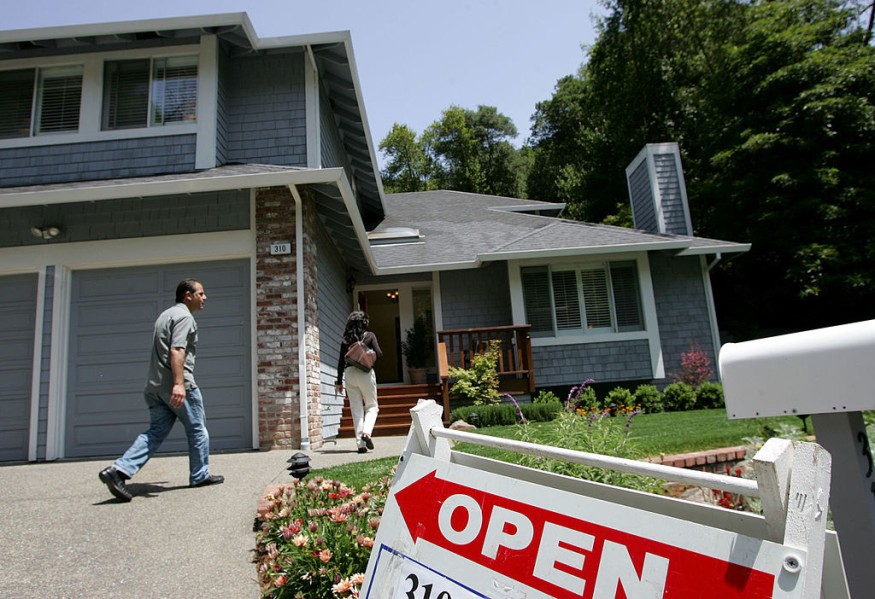
It has been almost a year since the coronavirus pandemic hit most parts of the world. While a vaccine is at our fingertips, we could not deny how it vastly affected major industries, including the real estate world.
Based on Fannie Mae's recent Home Purchase Sentiment Index, homebuyers' confidence in acquiring property drops as the COVID-19 pandemic continuously affect the market. It shows that consumers are more pessimistic about buying and selling homes.
The mortgage giant's survey outcome shows that both buyer and seller's confidence in the home market is at its lowest since May of last year, with respondents noting concern over economic condition brought by COVID-19 infection.
The said poll is based on more than 1,000 household financial decision-makers across the United States. The responses were recorded before the recent mob in the Capitol building in Washington, D.C.
Buying Outlook
According to the sentiment index, only 52% of consumers believe that now is a "good time to buy" a home, which is five-points low from the 57% that says the same thing back in November 2020. Respondents who think that it is a "bad time" to invest in properties increased by four points at 39%.
"The HPSI declined for the second consecutive month and fell to its lowest level since May 2020, as consumers adjusted to the worsening COVID-19 conditions of the first few weeks of December - the survey collection period," Fannie Mae Senior Vice President and Chief Economist Doug Duncan said.

Selling Outlook
Buyers are not the only ones losing confidence in the real estate market as the survey shows only 50% thinks now is a "good time to sell a home." While it is half the respondents, it shows a significant drop from the 59% response last month. Meanwhile, 42% of the consumers believe that it is a "bad time to sell" a house these days.
"Both the 'Good Time to Sell' and 'Good Time to Buy' components fell significantly, with respondents overwhelmingly noting the unfavourability of economic conditions," Duncan added.
The economics explained that it is the first time that the numbers dropped since April. It only shows that "at least temporarily, potential home sellers might wait to list their homes."
"If so, this could have the effect of perpetuating already-tight inventory levels and supporting additional (albeit lesser) home price growth, which could contribute to a further moderating of home sales," Duncan added.
Home Price and Mortgage Expectation
Moreover, the survey also shows that 41% of the consumers expect home prices will shoot up in the next 12 months, while only 16% believe it will decrease.
43% say they expect mortgage rates to rise a year from now, 39% think it will go down, while only 8% are confident that the rates will stay the same.
While homebuying confidence is at its lowest, at least 75% of the respondents are confident that they will not end up jobless in the next 12 months.
Technology and the Real Estate Industry
Internet technology has changed the way people sell, buy, rent, or manage their homes. Along with the development and use of smartphones, people are suddenly realizing that they can look for homes for sale or property rental regardless of their location. In a similar manner, property managers can also easily do their jobs wherever they are.
On a lighter note, the COVID-19 pandemic has streamlined and transformed the real estate industry again for the better. Technology has made it easier for buyers, sellers, and real estate investors to do what they want to do. People are still buying homes, pandemic or not. Similarly, people are also still selling their homes for many possible reasons. Four 19 Properties, for example, are still offering homeowners a fast way to sell their houses. And, the idea that people can do their jobs without leaving their homes cannot be that far-fetched.
The point here is that with the internet and smartphones, the real estate industry is still thriving. After the vaccine, it seems that it should be easier to schedule house tours, collect rent, or list properties in the market. Even with the pandemic, the real estate industry still has many reasons to be happy. While there are many people still suffering the effects of Covid-19, there are several reasons for the real estate industry to be excited about.
© 2025 Realty Today All rights reserved. Do not reproduce without permission.



